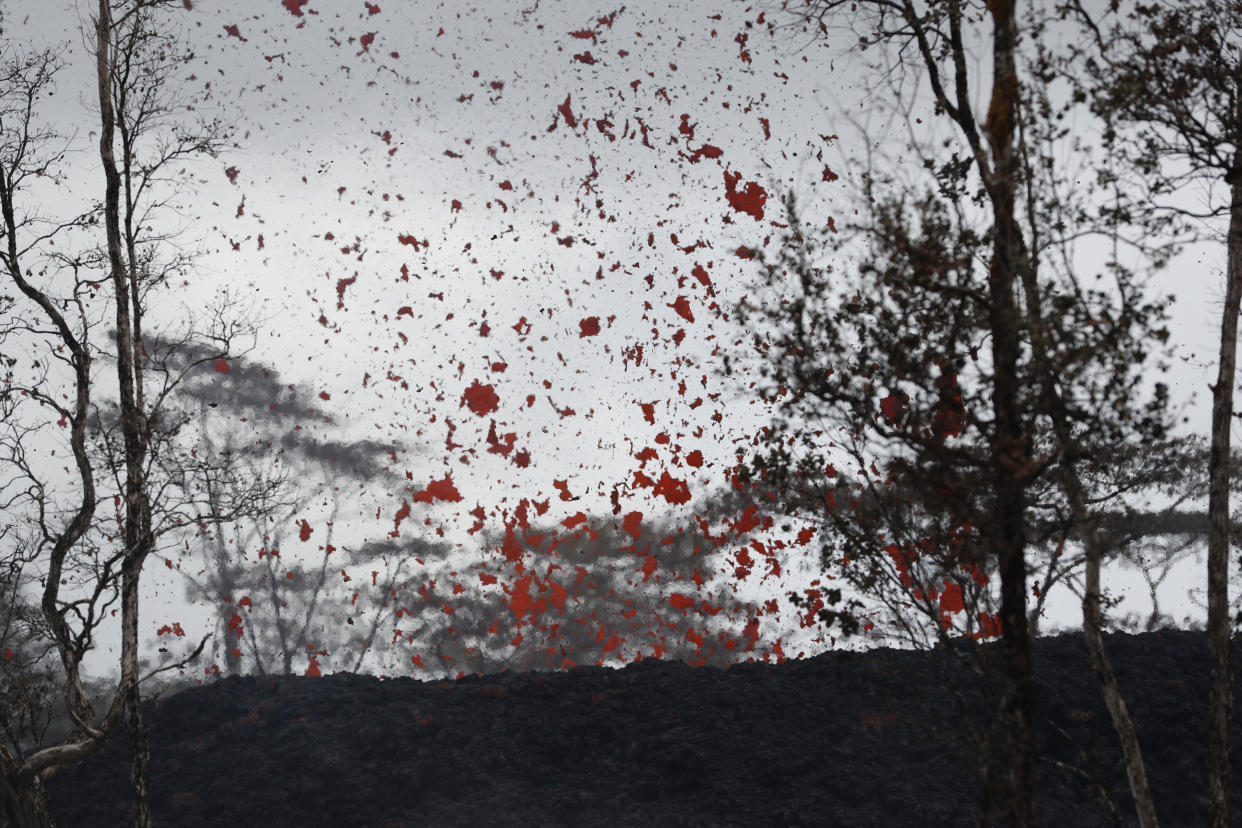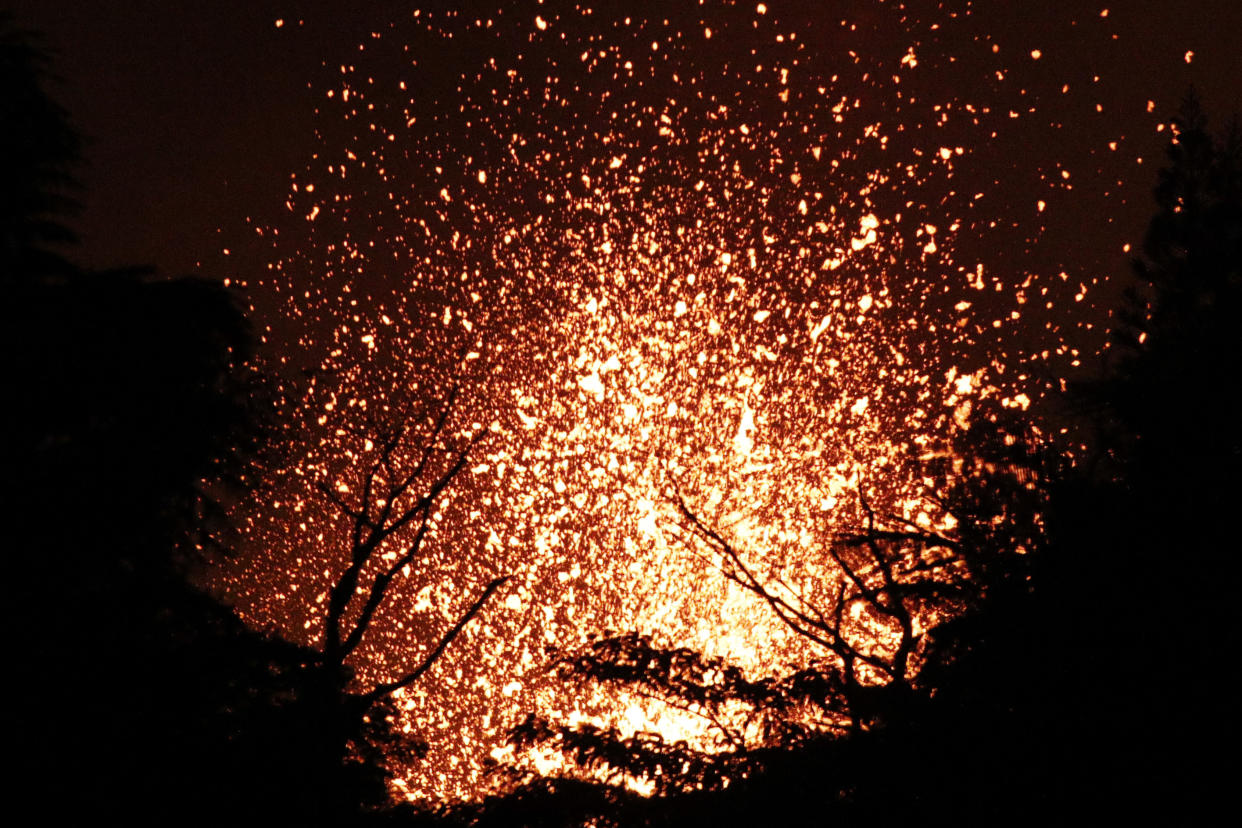Man suffers injury from 'lava spatter' after Kilauea volcano eruption in Hawaii

A man has sustained the first serious injury from a volcano eruption in Hawaii, it has been reported.
The injured man was reportedly sitting on a balcony at home in the town of Pahoa when “lava spatter” hit him, landing on his shin and shattering his leg.
A spokeswoman for the county mayor told Reuters: “It hit him on the shin and shattered everything there down on his leg”, adding that lava spatters can weigh “as much a refrigerator”.

The Kilauea volcano on Hawaii’s Big Island erupted at the beginning of May, and nearly 2,000 people have been forced to evacuate as fissures continue to open, causing lava spatter.
Residents have now been warned that the lava flow may cross a highway as it heads towards the ocean.
MORE: Beach near Bognor Regis cordoned off after WW2 sea mine found in the water
MORE: Prince Harry and Meghan Markle’s royal wedding: The best pictures of the day
The volcano has continued to remain active, releasing a small explosion at its summit just before midnight on Friday, sending an ash cloud 10,000 feet (3,048 meters) into the sky.
Other eruptions are causing ashfall and authorities are concerned that gas is also pouring from fissure vents, cloaking homes and trees in smoke.
“We have no way of knowing whether this is really the beginning or toward the end of this eruption,” said Tom Shea, a volcanologist at the University of Hawaii. “We’re kind of all right now in this world of uncertainty.”


